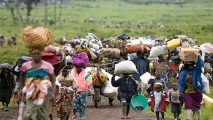Categories
Recent Posts
Archives
- April 2025
- March 2025
- February 2025
- January 2025
- December 2024
- November 2024
- October 2024
- September 2024
- August 2024
- July 2024
- June 2024
- May 2024
- April 2024
- March 2024
- February 2024
- January 2024
- December 2023
- November 2023
- October 2023
- September 2023
- August 2023
- July 2023
- June 2023
- May 2023
- April 2023
- March 2023
- February 2023
- January 2023
- December 2022
- November 2022
- October 2022
- September 2022
- August 2022
- July 2022
- June 2022
- May 2022
- April 2022
- March 2022
- February 2022
- January 2022
- December 2021
- November 2021
- October 2021
- September 2021
- August 2021
- July 2021
- June 2021
- May 2021
- April 2021
- March 2021
- February 2021
- January 2021
- December 2020
- November 2020
- October 2020
- September 2020
- August 2020
- July 2020
- June 2020
- May 2020
- April 2020
- March 2020
- February 2020
- January 2020
- December 2019
- November 2019
- October 2019
- September 2019
- August 2019
- July 2019
- June 2019
- May 2019
- April 2019
- March 2019
- February 2019
- January 2019
- December 2018
- November 2018
- October 2018
- September 2018
- August 2018
- July 2018
- June 2018
- May 2018
- April 2018
- March 2018
- February 2018
- January 2018
- December 2017
- November 2017
- October 2017
- September 2017
- August 2017
- July 2017
- June 2017
- May 2017
- April 2017
- March 2017
- February 2017
- January 2017
- December 2016
- November 2016
- October 2016
- September 2016
- August 2016
- July 2016
- June 2016
Featured
 Prosecution of journalists in Cameroon: European Parliament says enough red flags have been ignored
Prosecution of journalists in Cameroon: European Parliament says enough red flags have been ignored  1982-2025: How long will Biya hang on?
1982-2025: How long will Biya hang on?  How Biya and Archbishop Nkea protected the sanctity of the family in Cameroon
How Biya and Archbishop Nkea protected the sanctity of the family in Cameroon  October Presidential Election: Will 92-year-old Biya be re-elected?
October Presidential Election: Will 92-year-old Biya be re-elected?  Why is Biya seeking re-election?
Why is Biya seeking re-election?
Most Commented Posts
 4 Anglophone detainees killed in Yaounde
4 Anglophone detainees killed in Yaounde
18 comments Chantal Biya says she will return to Cameroon if General Ivo Yenwo, Martin Belinga Eboutou and Ferdinand Ngoh Ngoh are sacked
Chantal Biya says she will return to Cameroon if General Ivo Yenwo, Martin Belinga Eboutou and Ferdinand Ngoh Ngoh are sacked
13 comments The Anglophone Problem – When Facts don’t Lie
The Anglophone Problem – When Facts don’t Lie
12 comments Anglophone Nationalism: Barrister Eyambe says “hidden plans are at work”
Anglophone Nationalism: Barrister Eyambe says “hidden plans are at work”
12 comments Largest wave of arrest by BIR in Bamenda
Largest wave of arrest by BIR in Bamenda
10 comments
Latest Tweets
Featured
-

Algeria blocks flights from Mali after drone shot down
-

CRTV pays 850M CFA Francs, settling artist royalty arrears
-

Niat tops list of 10 oldest senate presidents in Africa
-

UN says 78,000 Southern Cameroonians sought asylum in Nigeria
-

Yaoundé relies on short-term debt to cover budget needs in 2024
-

Southwesterners form SWELA Chapter in Belgium to strengthen bonds
-

Pope greets crowds at Vatican in first appearance since leaving hospital
© Cameroon Concord News 2025
9, April 2023
Biya regime cancels visit from Canadian envoy to discuss Southern Cameroons crisis 0
Ottawa will have to show a little more patience before attempting to initiate talks again about the Southern Cameroon Crisis. Its assistant deputy minister for global affairs, Peter MacDougall, was expected in Cameroon at the end of March, but Yaoundé ended up cancelling at the last minute, reports Africa Intelligence.
All known peace initiatives including those led by the United Nations, the Catholic Church and regional and international governments – have either stalled or failed.
That has included the “Swiss process”, a behind-the-scenes move by the Geneva-based NGO Centre for Humanitarian Dialogue to host a series of “pre-talks” — capacity-building sessions with separatist leaders. It ran aground in 2019 after the Cameroon government rejected the approach.
Secret bilateral negotiations, led primarily by the office of Prime Minister Joseph Ngute and a group of imprisoned separatist leaders known as the “Nera 10” , also stumbled after two exploratory rounds – the result of infighting among secessionists and a perceived lack of will within the government to make the necessary political concessions.
That lack of control over fighters has encouraged a sense of lawlessness, which has undermined the appeal of the separatist cause.
In some cases, tired of the war – and what is often the high-handedness of the armed men in the bush – communities have demanded that secessionist fighters leave their villages, or have attacked separatist camps. That does not necessarily mean a vote of confidence in the government; rather, it’s likely a sign of frustration over the disruption caused by the conflict.
Yet, the perception of the fighters is that they are local champions, risking their lives for a legitimate cause.
Edited by Nelly Epupa